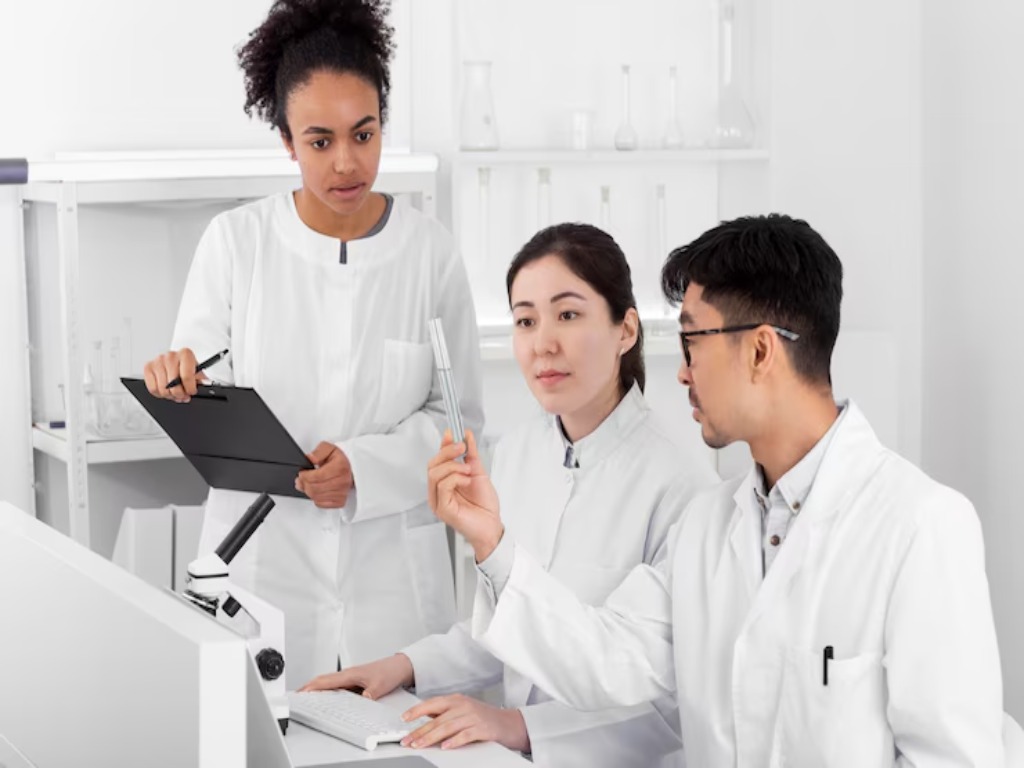

The pharmaceutical industry is one of the fastest-growing sectors in the global economy, with an increasing demand for skilled professionals. At Indore Institute of Pharmacy, the List of Pharmacy College in Indore where the healthcare industry expands, so does the need for qualified individuals who can contribute to drug development, patient safety, regulatory compliance, and pharmaceutical marketing. For aspiring professionals, pursuing a degree in pharmacy provides not only an in-depth understanding of pharmaceutical sciences but also equips students with the practical skills necessary to succeed in the competitive pharmaceutical job market.
In this article, we will explore how a pharmaceutical education prepares students for the dynamic pharmaceutical job market, covering the necessary academic foundation, industry exposure, practical skills, and specialized training that make graduates valuable assets to the industry.
Indore Institute of Pharmacy offers a comprehensive educational experience designed to prepare students for the fast-paced and ever-evolving pharmaceutical job market. Through specialized courses in Pharmaceutics and Quality Assurance, clinical training, and industry collaborations, we ensure our students develop the practical skills required by top pharmaceutical companies. Our state-of-the-art infrastructure, including research labs and dedicated personality development sessions, allows students to engage in real-world applications. With the support of our robust placement cell, IIP graduates consistently secure employment with leading pharmaceutical organizations, showcasing their readiness for the industry’s demands.
A degree in pharmacy provides students with a solid academic foundation in the core areas of pharmaceutical sciences. This knowledge base is essential for navigating the complexities of the pharmaceutical industry, which requires an understanding of drug development, therapeutic mechanisms, pharmaceutical chemistry, and patient care.
By offering a thorough understanding of these core areas, a pharmaceutical program ensures that students have the technical expertise required to succeed in various job roles within the industry. Whether students are looking to become pharmacists, researchers, or regulatory professionals, their academic education provides the foundational knowledge needed to excel in their careers.
The pharmaceutical job market is fast-paced and highly technical, making hands-on experience and practical training crucial for career success. Pharmacy programs integrate laboratory work, internships, and industry placements into their curriculum to give students real-world experience and prepare them for the challenges of the pharmaceutical field.
Through practical training, students acquire the critical thinking, problem-solving, and technical skills needed to handle complex pharmaceutical tasks. This training not only boosts their employability but also gives them a competitive edge in the job market.
The pharmaceutical industry is multifaceted, and job roles span across various functions such as drug research, clinical trials, sales, marketing, and regulatory affairs. A well-rounded education in pharmacy exposes students to various facets of the industry, helping them understand its wide-ranging impact on public health.
Through industry exposure and networking opportunities, students gain a better understanding of the job market and its requirements, allowing them to strategically prepare for their careers in the pharmaceutical sector.
The pharmaceutical industry is incredibly diverse, offering a wide range of career paths for graduates. These roles require specialized knowledge and skills tailored to specific areas such as clinical pharmacy, regulatory affairs, pharmaceutical marketing, and drug manufacturing. Many pharmacy programs offer specialized tracks or electives that allow students to tailor their education to their chosen career path.
By offering specialized training in these areas, pharmacy programs prepare students to step into various roles within the pharmaceutical industry, enabling them to find positions that align with their career goals and interests.
In addition to technical knowledge, the pharmaceutical industry requires professionals to have strong interpersonal and communication skills, as well as the ability to work in teams and manage projects effectively. Pharmacy programs recognize the importance of these skills and often integrate professional development into their curricula.
These soft skills, combined with the technical expertise gained through the curriculum, ensure that students are well-rounded professionals ready to meet the demands of the dynamic pharmaceutical job market.
The pharmaceutical industry is a global enterprise, with opportunities available in various countries and regions. As the world becomes more interconnected, many pharmaceutical companies are expanding internationally, creating job opportunities for professionals with global perspectives. Pharmacy programs that include international exposure, language training, and cross-cultural education give students the skills necessary to succeed in the global job market.
By preparing students for global career opportunities, pharmaceutical programs ensure that graduates can compete for positions not only in their home country but also abroad.
As the pharmaceutical industry continues to grow and evolve, the demand for skilled professionals who can navigate its complexities is on the rise. At Indore Institute of Pharmacy, the Pharmacy Colleges in Indore where pharmacy programs that provide a comprehensive academic foundation, practical training, industry exposure, and specialized knowledge are essential for preparing students to succeed in this dynamic job market.
By equipping students with the technical expertise, soft skills, and global perspective required to excel in various roles within the pharmaceutical industry, these programs play a critical role in shaping the next generation of healthcare professionals. Graduates who are well-prepared for the pharmaceutical job market will be at the forefront of innovation, drug safety, and patient care, making a lasting impact on global healthcare.